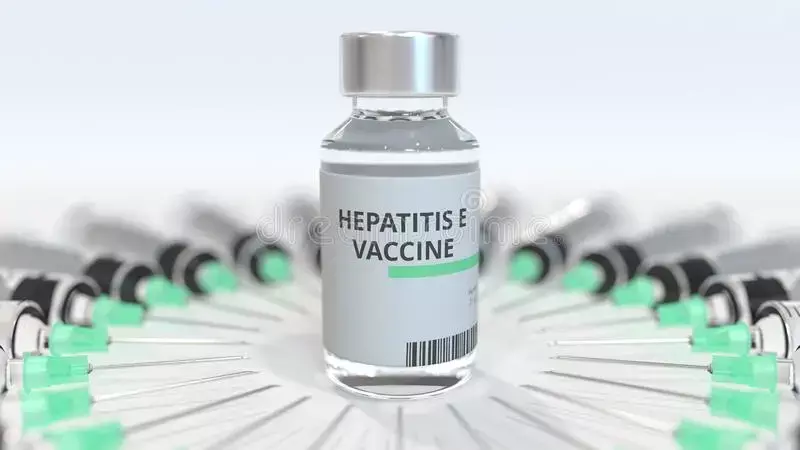- Home
- Medical news & Guidelines
- Anesthesiology
- Cardiology and CTVS
- Critical Care
- Dentistry
- Dermatology
- Diabetes and Endocrinology
- ENT
- Gastroenterology
- Medicine
- Nephrology
- Neurology
- Obstretics-Gynaecology
- Oncology
- Ophthalmology
- Orthopaedics
- Pediatrics-Neonatology
- Psychiatry
- Pulmonology
- Radiology
- Surgery
- Urology
- Laboratory Medicine
- Diet
- Nursing
- Paramedical
- Physiotherapy
- Health news
- Fact Check
- Bone Health Fact Check
- Brain Health Fact Check
- Cancer Related Fact Check
- Child Care Fact Check
- Dental and oral health fact check
- Diabetes and metabolic health fact check
- Diet and Nutrition Fact Check
- Eye and ENT Care Fact Check
- Fitness fact check
- Gut health fact check
- Heart health fact check
- Kidney health fact check
- Medical education fact check
- Men's health fact check
- Respiratory fact check
- Skin and hair care fact check
- Vaccine and Immunization fact check
- Women's health fact check
- AYUSH
- State News
- Andaman and Nicobar Islands
- Andhra Pradesh
- Arunachal Pradesh
- Assam
- Bihar
- Chandigarh
- Chattisgarh
- Dadra and Nagar Haveli
- Daman and Diu
- Delhi
- Goa
- Gujarat
- Haryana
- Himachal Pradesh
- Jammu & Kashmir
- Jharkhand
- Karnataka
- Kerala
- Ladakh
- Lakshadweep
- Madhya Pradesh
- Maharashtra
- Manipur
- Meghalaya
- Mizoram
- Nagaland
- Odisha
- Puducherry
- Punjab
- Rajasthan
- Sikkim
- Tamil Nadu
- Telangana
- Tripura
- Uttar Pradesh
- Uttrakhand
- West Bengal
- Medical Education
- Industry
Is Budesonide effective as first-line therapy in autoimmune hepatitis?

In a new study, Álvaro Díaz-González and team found that budesonide is rarely used as a first-line therapy and is often only given to individuals who have symptoms that are thought to be less severe. The findings of this study were published in Hepatology.
Clinical practice guidelines advise the indiscriminate use of prednisone or budesonide in patients with non-severe acute or chronic autoimmune hepatitis (AIH) without cirrhosis. Budesonide is seldom ever used in clinical practice, nevertheless. The purpose of this study was to describe its use and evaluate its effectiveness and safety in comparison to prednisone as first-line treatment choices.
Budesonide was administered as the first-line medication to 105 individuals with naïve AIH in this retrospective, multicenter research. 276 patients who received prednisone treatments made up the control group. Inverse likelihood of treatment weighted propensity score was used to validate effectiveness after logistic regression was used to evaluate it. Patients receiving budesonide had a median time to biochemical response (BR) of 3.1 months, whereas those receiving prednisone had a median time to BR of 4.9 months.
The key findings of this study were:
1. Prednisone patients had a considerably greater BR rate (87% vs. 49% of patients receiving budesonide, p = 0.001) than those receiving budesonide.
2. At any point throughout follow-up as well as at 6 and 12 months after treatment began, the chance of obtaining BR, as measured by the inverse probability of treatment weighted propensity score, was considerably lower in the budesonide group.
3. In individuals with transaminases 2 upper limit of normality (ULN), BR was comparable across the two therapy groups.
4. A greater risk of adverse events was substantially related with prednisone administration (24.2% vs. 15.9%, p = 0.047).
A decreased incidence of adverse events was linked to budesonide. Although there was no baseline predictor of response found, prednisone-treated individuals had a greater likelihood of BR when their alanine aminotransferase (ALT) or ALT + aspartate aminotransferase (AST) levels dropped quickly. Low transaminase levels at diagnosis (2 ULN) patients had comparable BR with both corticosteroid therapies and may benefit from the less adverse events (AEs) linked to budesonide therapy.
Reference:
Díaz-González, Á., Hernández-Guerra, M., Pérez-Medrano, I., Sapena, V., Riveiro-Barciela, M., Barreira-Díaz, A., Gómez, E., Morillas, R. M., Del Barrio, M., Escudé, L., Mateos, B., Arencibía, A., Zamora, J., … Fernández, A. (2023). Budesonide as first-line treatment in patients with autoimmune hepatitis seems inferior to standard predniso(lo)ne administration. In Hepatology (Vol. 77, Issue 4, pp. 1095–1105). Ovid Technologies (Wolters Kluwer Health). https://doi.org/10.1097/hep.0000000000000018
Neuroscience Masters graduate
Jacinthlyn Sylvia, a Neuroscience Master's graduate from Chennai has worked extensively in deciphering the neurobiology of cognition and motor control in aging. She also has spread-out exposure to Neurosurgery from her Bachelor’s. She is currently involved in active Neuro-Oncology research. She is an upcoming neuroscientist with a fiery passion for writing. Her news cover at Medical Dialogues feature recent discoveries and updates from the healthcare and biomedical research fields. She can be reached at editorial@medicaldialogues.in
Dr Kamal Kant Kohli-MBBS, DTCD- a chest specialist with more than 30 years of practice and a flair for writing clinical articles, Dr Kamal Kant Kohli joined Medical Dialogues as a Chief Editor of Medical News. Besides writing articles, as an editor, he proofreads and verifies all the medical content published on Medical Dialogues including those coming from journals, studies,medical conferences,guidelines etc. Email: drkohli@medicaldialogues.in. Contact no. 011-43720751


